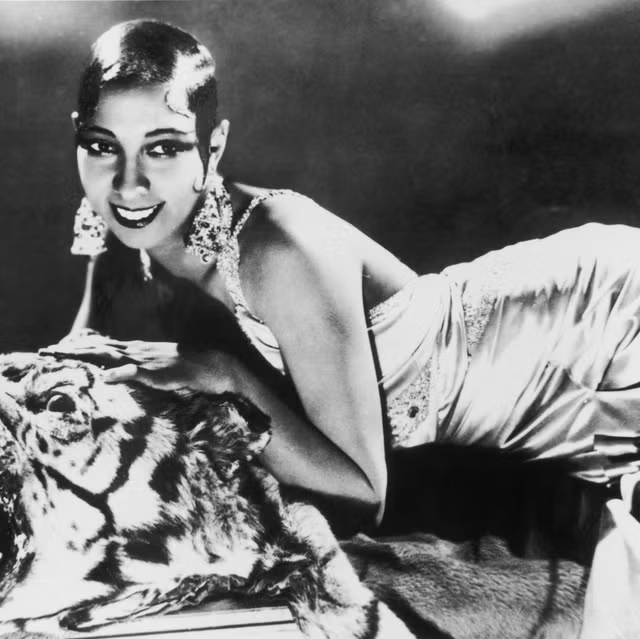
Josephine Baker wasn’t just a dazzling performer; she was a revolutionary figure who used her fame to challenge racism and fight for civil rights. Born into poverty in St. Louis, Missouri, Baker escaped the racial constraints of America by moving to France, where she flourished as an international sensation. However, her journey wasn’t just about success overseas—she longed to return to the U.S. and be embraced by the country that had once rejected her. Though she initially struggled, Baker ultimately used her celebrity to support the Civil Rights Movement alongside Martin Luther King Jr., cementing her legacy as more than just an entertainer, but a trailblazer for justice.
Fleeing the Shackles of American Racism
Born in 1906, Josephine Baker grew up in the harsh reality of segregation and racial discrimination. As a Black woman in the early 20th century, opportunities for success were slim, especially in the entertainment industry. Determined to break free from the limitations imposed upon her, Baker left the U.S. in the 1920s, seeking a new life in France—a country where she would find the respect and admiration denied to her in America.
In Paris, Baker became an overnight sensation. Her performances at the Folies Bergère, particularly her famed “banana skirt dance,” captivated audiences and established her as an icon of the Jazz Age. Unlike in the U.S., where racial barriers limited her potential, France embraced her talent. She was not just a dancer or singer; she became a symbol of freedom, sensuality, and artistic brilliance.
But Baker’s love for France went beyond the stage—she fully immersed herself in her adopted homeland. She renounced her American citizenship and eventually became a French citizen. During World War II, she proved her loyalty to France by working as a spy for the French Resistance, using her celebrity status to smuggle information against the Nazis. Her courage in the face of danger made her not just an artist, but a war hero.

The Struggle to Return to America
Despite her fame in Europe, Baker longed for recognition in her birth country. She attempted to return to the U.S. in the 1930s and 1950s, but America’s deep-seated racism had not changed. Though she was an internationally acclaimed performer, many American venues refused to let her perform due to segregation laws. Others only allowed her to entertain in front of segregated audiences.
Her frustration with racism in the U.S. led her to become an outspoken critic of discrimination. She famously turned down opportunities to perform in venues that did not allow Black patrons, even at the cost of losing money. In 1951, she took a stand against the Stork Club in New York, which had denied her service. This led to her being falsely accused of communist ties, forcing her to leave America once again.
Using Fame for the Civil Rights Movement

Though America rejected her in many ways, Baker never gave up on the fight for equality. In the 1960s, she aligned herself with the Civil Rights Movement, using her fame to amplify the cause. She participated in the historic March on Washington for Jobs and Freedom in 1963, where she was the only official female speaker. Wearing her French military uniform, adorned with the medals she earned for her service in WWII, Baker stood alongside Martin Luther King Jr. and other activists.
Her speech at the march was powerful. She reminded the crowd that, despite being celebrated overseas, she had always felt the pain of racism in the U.S. She urged Black Americans to believe in their own worth and continue fighting for justice. Her presence on that stage proved that her legacy wasn’t just about dance and music—it was about activism and resilience.
A Legacy Beyond the Stage
Josephine Baker’s contributions to the world went far beyond entertainment. She used her success to fight for justice and even built a family that embodied her vision of racial unity. She adopted 12 children from different racial backgrounds, calling them her “Rainbow Tribe.” Her goal was to show that people of all races could live together in harmony.
In her later years, Baker continued to be an advocate for civil rights, though she never fully received the recognition she deserved in the U.S. It wasn’t until 2021 that she made history once again—becoming the first Black woman inducted into France’s Panthéon, an honor reserved for the nation’s greatest figures.
Josephine Baker’s story is one of perseverance, talent, and an unyielding commitment to justice. She was more than just a performer—she was a revolutionary who defied racism, challenged oppression, and paved the way for future generations.
